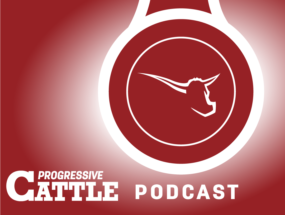This article will provide a brief overview of the litigation between Bundy and the federal government.
Bundy’s family has raised cattle in the Bunkerville, Nevada, area for generations. Bundy ran cattle on land owned by the federal government and managed by the BLM. In 1993, Bundy, reportedly upset that the government had limited grazing rights on federal lands to protect the habitat of the desert tortoise, refused to renew his permit for grazing and refused to pay his lease fees to the federal government. However, he continued grazing the federal land.
In May 1998, the government filed suit against Bundy, alleging Bundy failed to pay his grazing lease fees to the BLM. The government argued that because of this failure, his cattle were trespassing on the federal land known as the “Bunkerville allotment.” Bundy argued the land upon which his cattle grazed was owned not by the federal government but, instead, by the state of Nevada.
In November 1998, the court entered an order rejecting this argument, holding that “the public lands in Nevada are the property of the United States because the United States has held title to those public lands since 1848, when Mexico ceded the land to the United States.” Thus, the judge ruled in favor of the government, permanently banning Bundy from grazing livestock on the Bunkerville allotment and ordering Bundy to remove his cattle.
Bundy did not remove his cattle and, according to court pleading filed by the government, actually allowed cattle to graze on an even larger portion of federal lands in the area.
In May 2012, the government again filed suit, this time seeking a court order that Bundy was trespassing and requiring him to remove his cattle from the “New Trespass Area” where they were located. Again, the court rejected Bundy’s argument the land was state-owned and ordered he be permanently barred from trespassing on the “New Trespass Area” lands.
Further, the court ordered Bundy to remove his cattle within 45 days of the July 2013 order and, if he failed to do so, gave the BLM the authority to seize and remove the cattle.
In November 2013, the government went back to court to seek an additional court order related to the Bunkerville allotment. The court again ordered Bundy to remove his cattle from the federal land within 45 days, allowing the BLM to seize and remove if Bundy failed to do so and ordering Bundy not to interfere with the removal.
In April of the following year, the now infamous stand-off occurred when the BLM sought to seize the cattle and remove them from federal lands. The BLM and various other officials gathered many of Bundy’s cattle and penned them up on the land. After a contentious, armed confrontation between the BLM and Bundy supporters, the BLM released the cattle due to a “serious concern about the safety of employees and members of the public.”
It was this armed standoff that led to criminal charges being filed against Bundy. Charges included a number of felonies, including conspiracy, assault on a federal officer and using a firearm in a violent crime.
In October 2017, the criminal trial began. When it came to light the government had failed to turn over potentially exculpatory evidence as required by the Brady rule, Judge Gloria Navarro found the government committed “flagrant prosecutorial misconduct” and dismissed the criminal charges against Bundy and his co-defendants.
It was dismissed “with prejudice,” which means charges may not be re-filed against him. The government can, however, appeal the dismissal with prejudice and, if reversed on appeal, the dismissed charges would be reinstated.
So where does this leave Bundy now? His criminal case has been dismissed, but numerous civil judgments remain against him. These include injunctions prohibiting him from trespassing on federal lands, ordering removal of his cattle and requiring over $1 million in trespass damages.
Thus far, the government has not taken recent action to remove the cattle or enforce the orders against Bundy. ![]()

-
Tiffany Dowell Lashmet
- Assistant Professor and Extension Specialist – Agricultural Law
- Texas A&M AgriLife Extension Service
- Email Tiffany Dowell Lashmet








